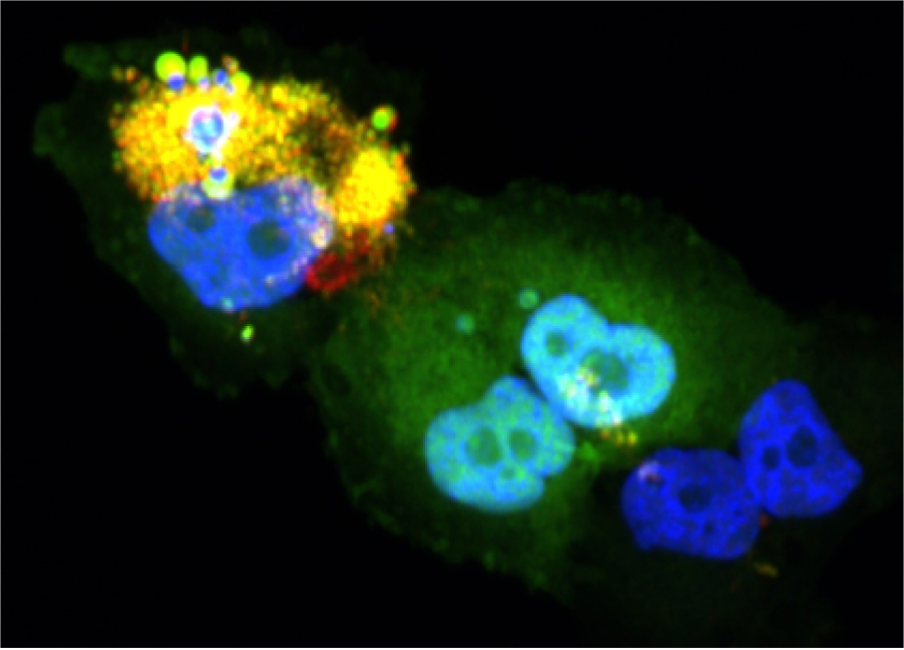/ News, Research
Gene scissors for guided drug prediction (Heinzelmann Lab)
Ovarian cancer is one of the most lethal cancers among women. PARP inhibitors (PARPi) have revolutionised the therapeutic landscape of ovarian cancer treatment with outstanding benefits. However, it remains uncertain which PARPi (olaparib, niraparib, or rucaparib) to apply and how to predict responders beyond BRCAness. The current clinical application of different PARPi is based on the outcome of clinical trials and adverse drug reaction. Therefore, it is of utmost importance to perform a comprehensive investigation on the potential differential gene dependencies for response to the different PARPi and platinum chemotherapy
CRISPR-Cas9 screening for prediction of PARPi response
Characterization of gene mutations associated with drug response is a key goal in (pre-) clinical research. Although several genes have been described in the context of PARPi response, their impact on “cancer cell fitness” defined by altered cell proliferation and survival has been less investigated. Here, the ovarian cancer research group led by Viola Heinzelmann-Schwarz and Francis Jacob applied a novel gene scissor-based competition assay in ovarian cancer cells. Among the most described genes in the literature, the group identified only ATM,MUS81, NBN, BRCA2, and RAD51B as predictive markers for olaparib response. By testing these genes in combination with other PARPi and the chemotherapeutic compound carboplatin, they found similar effects supporting the strong correlation of cancer cell response to compounds that rely on DNA repair for their effectiveness.
Identification of novel therapeutic targets for epithelial ovarian cancer
Targeted cancer therapeutics aim to exploit genetic vulnerabilities affecting neoplastic cells. Here, we also identified CDK12 as a gene essential for ovarian cancer cell survival. The researchers are now aiming to consolidate the findings in patient-derived tumour cells in combination with pharmacological inhibition of CDK12 and (phospho)-proteomics to explore the CDK12 function in cancer providing further evidence of its potential for targeted therapy in women with ovarian cancer.

